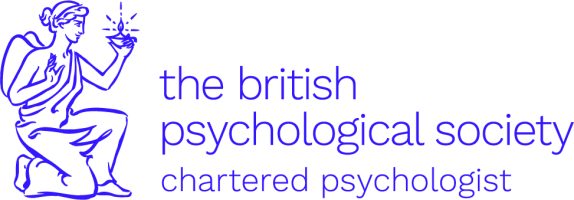What Is a Clinical Psychologist?

When it comes to seeking support for mental health difficulties, it’s essential to understand the distinction between different professionals who can provide support. Clinical psychologists are highly trained mental health professionals who specialise in assessing and treating a wide range of emotional and psychological difficulties. Below, we’ve explored the differences between clinical psychologists and other mental health professionals, their approaches, qualifications, and the services provided by our clinical psychologist in Norwich, Dr Jinnie Ooi.
Qualifications of Clinical Psychologists
To become a clinical psychologist, individuals must earn a Doctorate in Clinical Psychology (ClinPsyD), which is accredited by the British Psychology Society (BPS). With training taking at least 7 years or more, this extensive education and experience equips psychologists with the knowledge and skills needed to assess, diagnose, and treat various psychological difficulties. To ensure knowledge and skills are kept up to date, clinical psychologists also complete regular training and continued professional development (CPD), and receive regular supervision from another clinical psychologist.

(The Association of Clinical Psychologists UK, ACP UK)
What do the Different Terms Mean?
- ‘Clinical Psychologist’ is a protected title and clinical psychologists are regulated by the Health and Care Professions Council (HCPC), the statutory regulator that sets and maintains standards for the profession.
- “Chartered Psychologist” (CPsychol) is a legally recognised title conferred by The British Psychological Society (BPS) and reflects only the highest standard of psychological knowledge and expertise.
Clinical Psychologist Approaches
Clinical psychologists are trained to employ a variety of evidence-based therapeutic approaches tailored to their clients’ needs. They draw from a number of these methods to create personalised treatment plans that address the unique circumstances of each individual, in order to help them achieve their therapy goals. Here at Angsana Psychology, our clinical psychologist Dr Jinnie Ooi integrates a number of therapy approaches, including Cognitive Behavioural Therapy (CBT), Acceptance and Commitment Therapy (ACT) and Compassion Focused Therapy (CFT).
Clinical Psychologists vs Other Mental Health Professionals
Clinical psychologists are often compared to other mental health professionals, such as counsellors, psychotherapists, and psychiatrists. While all of these professionals work towards enhancing mental health, they differ in their approach and training.
Clinical psychologists tend to work with clients presenting with moderate to severe levels of mental health difficulties, often with high levels of complexity and risk. They are highly skilled at psychological formulation, a collaborative process of developing a shared understanding of difficulties with the clients. This allows for the development of an individualised intervention plan based on the clients’ specific needs by integrating a broad range of therapeutic approaches. They are also involved in organisational leadership (e.g., setting up and evaluating services) and contribute to clinical research to improve patient care.
Counsellors typically focus on addressing current issues and are ideal for those who are already self-aware and seek insightful guidance. They are professionals who provide life advice and coaching, helping clients identify their goals and find solutions to emotional distress. They excel in improving communication, coping mechanisms, self-esteem, and encouraging positive behaviour. Some counsellors offer general assistance, while others specialise in specific areas like depression or relationship issues. The duration of counselling is usually short-term, typically around 12 weeks or less, but can vary depending on the individual’s needs. In cases of severe mental health issues, clients may be referred to more specialised professionals for diagnosis and treatment.
Psychotherapists, focus on resolving deep-seated emotional issues by modifying aspects of an individual’s life which make them vulnerable. Psychotherapy may involve methods like dream analysis and exploring one’s history to uncover unconscious conflicts and bring them to a conscious level for resolution. Unlike counselling, psychotherapy is a longer-term process, addressing emotional issues tied to an individual’s personal background and life challenges. It aims to provide a better understanding of one’s feelings, actions, and thoughts, ultimately enabling a happier and more fulfilled life.
Psychiatrists, on the other hand, are medical doctors who can diagnose mental health conditions and prescribe medication. They often work alongside clinical psychologists.
Clinical Psychologist Norwich
At Angsana Psychology in Norwich, our chartered clinical psychologist Dr Jinnie Ooi is committed to providing the highest level of care. We offer a wide range of services, including individual therapy, couples therapy, and assessments for various mental health conditions. Taking a compassionate and evidence-based approach to therapy in Norwich, we support children, families, and adults with a range of issues, including anxiety, depression, stress, and those living with a physical health condition.
If you are seeking therapy or counselling in Norwich, contact our clinical psychologist today for an initial assessment.




